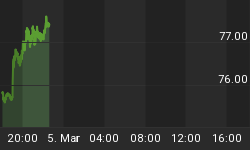| Act | Exp | Prev | GMT |
| 0.2% | 0.2% | 0.2% | Jul 31 9:00 |
| 0.9% | 0.8% | 0.8% | Jul 31 9:00 |
| 2.3% | 2.5% | 0.6% | Jul 30 12:30 |
| 2.1% | 1.5% | 0.1% | Jul 30 12:30 |
The relationship between oil prices and the euro remains unambiguously positively correlated, especially as the renewed decline in energy reflects a secular bear market in commodities, accompanied by a persistent bull in the US dollar. So does another 5% decline in oil suggests sub-$1.05 in EURUSD?

If oil resumes falling, say, after Iranian oil hits the market and China's slowdown take a turn to the worse (or fails to reverse), then how can the euro survive further damage? There are several ways, mainly via the US:
i) Prolonged oil declines will stand in the way of a Fed hike & end up capping USD gains due to renewed CPI weakness.
ii) The extent of above depends on which the US starts to import deflation via strong USD & from a weakening China/Europe.
iii) The extent of the above also depends on the reaction from equities, fretting about deflation & falling capex. The contribution of non-residential investment to Q2 GDP was -0.07%, the first negative contribution since Q3 2012.
Note the chart reveals that both oil and the euro bottomed in early 2009, well before Eurozone inflation, which was largely due to the peak in the USD, coinciding with the bottom in equities. This year, euro bulls require further improvement in inflation expectations, alongside a scaling down in Fed hike expectations.
Is that all? Not really. FX traders will want to remember that the bulk of a currency's change occur ahead of shifting policy cycles and not after.















